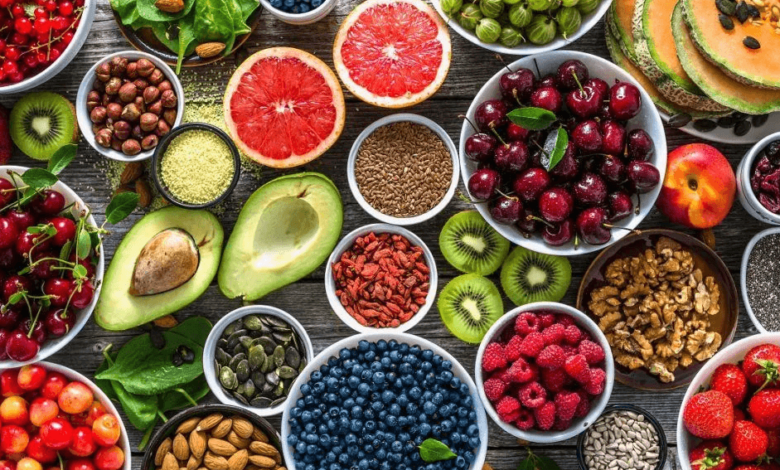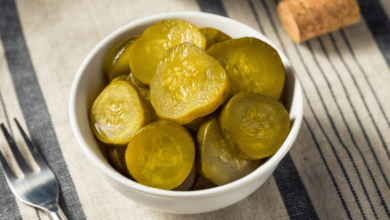wellhealthorganic.com:to-increase-immunity-include-winter-foods-in-your-diet-health-tips-in-hindi

Introduction
Winter is a time when our bodies are more susceptible to colds, flu, and other infections. Incorporating specific foods into our diet can significantly enhance our immune system, keeping us healthy throughout the colder months. This article explores the wellhealthorganic.com:to-increase-immunity-include-winter-foods-in-your-diet-health-tips-in-hindi, their health benefits, and practical tips for incorporating them into your daily diet, with insights from wellhealthorganic.com and health tips in Hindi.
Understanding Immunity
The immune system is a complex network of cells, tissues, and organs that work together to defend the body against harmful microorganisms. A strong immune system is crucial for preventing infections and maintaining overall health. During winter, when our immune system faces additional challenges, it becomes even more important to support it with the right nutrients and lifestyle choices.
Benefits of Seasonal Eating
Eating seasonal foods has numerous benefits. Seasonal foods are fresher, more nutritious, and often more affordable. They are harvested at their peak, which means they contain higher levels of vitamins and minerals compared to out-of-season produce. In winter, there is an abundance of foods that can help boost your immunity and keep you warm and healthy.
Key Nutrients for Immunity
Certain nutrients are particularly important for maintaining a strong immune system. These include:
- Vitamins: Vitamin C, Vitamin D, and Vitamin A are essential for immune function.
- Minerals: Zinc and selenium play critical roles in immune health.
- Antioxidants: These help protect the body from oxidative stress and support immune response.
Top Winter Foods to Boost Immunity
Citrus Fruits for Immunity
Citrus fruits like oranges, lemons, and grapefruits are rich in Vitamin C, which is known to enhance immune function. They also contain bioflavonoids, which increase the absorption of Vitamin C and offer additional antioxidant benefits.
Leafy Greens for Health
Leafy greens such as spinach, kale, and Swiss chard are packed with vitamins A, C, and K, as well as folate and iron. These nutrients are vital for the production and activity of immune cells.
Root Vegetables and Immunity
Root vegetables like carrots, sweet potatoes, and beets are excellent sources of beta-carotene, which the body converts into Vitamin A. Vitamin A is crucial for maintaining the health of mucosal surfaces, including those in the respiratory tract.
Nuts and Seeds for a Strong Immune System
Nuts and seeds, including almonds, walnuts, and sunflower seeds, provide essential fatty acids, Vitamin E, and zinc, all of which are important for immune function. They also offer protein and fiber, making them a nutritious snack.
Herbs and Spices to Boost Immunity
Herbs and spices like ginger, turmeric, and garlic have anti-inflammatory and antimicrobial properties. These spices not only enhance the flavor of dishes but also support immune health by reducing inflammation and fighting off infections.
The Role of Fermented Foods
Fermented foods such as yogurt, kimchi, and sauerkraut contain probiotics, which are beneficial bacteria that support gut health. A healthy gut is closely linked to a strong immune system, as a significant portion of the immune system is located in the gut.
Traditional Indian Winter Foods for Immunity
Amla
Amla (Indian gooseberry) is a powerhouse of Vitamin C and antioxidants, which help in boosting immunity and preventing infections.
Tulsi
Tulsi (holy basil) has antibacterial, antiviral, and antifungal properties. Drinking tulsi tea can help in warding off respiratory infections and strengthening the immune system.
Turmeric Milk
Turmeric milk, or “golden milk,” is a traditional remedy for boosting immunity. Turmeric contains curcumin, a compound with strong anti-inflammatory and antioxidant effects.
Read Also wellhealthorganic.com:raw-banana-flour-benefits-and-uses
Jaggery
Jaggery is rich in iron and minerals and helps in detoxifying the body. It also boosts immunity and provides warmth during the winter months.
Healthy Winter Recipes
Immune-Boosting Smoothies
Smoothies made with ingredients like spinach, citrus fruits, and yogurt can provide a delicious and nutritious start to your day.
Hearty Soups
Soups made with root vegetables, legumes, and spices like turmeric and garlic can be both comforting and nourishing.
Warm Salads
Warm salads incorporating leafy greens, roasted root vegetables, nuts, and seeds can be a great way to include nutrient-dense foods in your diet.
Winter Food Dos and Don’ts
Foods to Include
- Include a variety of fruits and vegetables, especially those rich in vitamins A, C, and E.
- Consume nuts, seeds, and legumes for protein and essential fatty acids.
- Use herbs and spices like garlic, ginger, and turmeric to enhance flavor and boost immunity.
Foods to Avoid
- Avoid processed and sugary foods as they can weaken the immune system.
- Limit the intake of alcohol and caffeine, which can dehydrate the body and impair immune function.
Hydration and Immunity
Staying hydrated is essential for maintaining a healthy immune system. In winter, it can be easy to forget to drink enough water. Here are some tips:
- Drink warm herbal teas, such as tulsi tea or ginger tea.
- Consume broths and soups to stay hydrated and nourished.
- Keep a water bottle handy and sip water throughout the day.
Physical Activity in Winter
Regular exercise is vital for maintaining a strong immune system. During winter, it might be challenging to stay active, but it’s important to find ways to incorporate physical activity into your routine:
- Engage in indoor exercises like yoga, pilates, or home workouts.
- Take brisk walks outside when the weather permits.
- Try winter sports like skiing or ice skating if accessible.
Mental Health and Immunity
Mental health plays a significant role in immune function. Stress can weaken the immune system, making you more susceptible to illness. Here are some strategies for managing stress:
- Practice mindfulness and meditation to reduce stress levels.
- Engage in activities that you enjoy and that help you relax.
- Ensure you have a support system in place to talk about your concerns and feelings.
The Importance of Sleep
Adequate sleep is crucial for a well-functioning immune system. Lack of sleep can lead to a weakened immune response. To improve your sleep:
- Establish a regular sleep routine.
- Create a restful environment free of distractions.
- Avoid screens and caffeine before bedtime.
Common Winter Illnesses and Prevention
Colds
Colds are common during winter. Prevent them by washing hands regularly, avoiding close contact with sick individuals, and maintaining a healthy diet.
Flu
The flu is more severe than a cold and can lead to complications. Get a flu vaccine, practice good hygiene, and strengthen your immune system with proper nutrition.
Respiratory Infections
Respiratory infections can be caused by various pathogens. Prevent them by staying warm, avoiding exposure to pollutants, and consuming immune-boosting foods.
Read Also wellhealthorganic.com : how to gain muscle @ well health organic
Natural Remedies for Winter Illnesses
Herbal Teas
Herbal teas made from ginger, tulsi, and chamomile can soothe symptoms and support immune health.
Steam Inhalation
Steam inhalation with essential oils like eucalyptus can help relieve congestion and respiratory discomfort.
Honey and Lemon
A mixture of honey and lemon in warm water can soothe a sore throat and provide Vitamin C and antimicrobial benefits.
Supplements for Immunity
While it’s best to get nutrients from food, sometimes supplements can help:
- Vitamin D: Especially important in winter due to limited sunlight exposure.
- Vitamin C: Can help shorten the duration of colds.
- Zinc: Essential for immune function and can reduce the severity of cold symptoms.
Healthy Lifestyle Habits
Adopting a healthy lifestyle is essential for maintaining a strong immune system:
- Eat a balanced diet rich in fruits, vegetables, nuts, and seeds.
- Engage in regular physical activity.
- Ensure you get adequate sleep and manage stress effectively.
Dietary Tips in Hindi
For those who prefer health tips in Hindi, wellhealthorganic.com offers a range of resources. Here are some popular winter foods in Indian cuisine that boost immunity:
- Amla (आंवला): High in Vitamin C, boosts immunity.
- Tulsi (तुलसी): Helps prevent respiratory infections.
- Haldi Doodh (हल्दी दूध): Boosts immunity and reduces inflammation.
- Gur (गुड़): Detoxifies the body and improves immunity.
Personal Experiences and Anecdotes
Incorporating these winter foods into your diet can lead to noticeable improvements in your health. Many individuals have shared their stories of feeling more energetic, falling sick less often, and experiencing better overall well-being after making these dietary changes. Community insights highlight the importance of traditional wisdom and seasonal eating in maintaining health.
Frequently Asked Questions
What are the best winter foods to boost immunity? The best winter foods for boosting immunity include citrus fruits, leafy greens, root vegetables, nuts and seeds, herbs and spices, and fermented foods.
How does turmeric help in boosting immunity? Turmeric contains curcumin, which has anti-inflammatory and antioxidant properties, helping to enhance immune function and reduce the risk of infections.
Can I improve my immunity through diet alone? While diet plays a significant role in immune health, it’s also important to maintain a balanced lifestyle, including regular exercise, adequate sleep, and stress management.
What are some traditional Indian foods that boost immunity? Traditional Indian foods that boost immunity include amla, tulsi, turmeric milk, and jaggery. These foods are rich in essential nutrients and have been used for centuries to promote health.
Are there any foods to avoid during winter to stay healthy? Yes, it’s advisable to avoid processed foods, sugary snacks, and excessive alcohol and caffeine, as they can weaken the immune system.
How important is hydration for immunity in winter? Staying hydrated is crucial for maintaining a healthy immune system. Drink plenty of water, herbal teas, and consume hydrating foods like soups and broths to support immune function.
Conclusion
Incorporating winter foods into your diet is a powerful way to boost your immunity and stay healthy during the colder months. wellhealthorganic.com:to-increase-immunity-include-winter-foods-in-your-diet-health-tips-in-hindi, By focusing on nutrient-rich, seasonal foods, you can support your immune system and reduce the risk of winter illnesses. Remember to maintain a balanced lifestyle with adequate sleep, regular exercise, and stress management to achieve optimal health. Explore the wealth of information and tips available at wellhealthorganic.com to further enhance your winter wellness journey.






